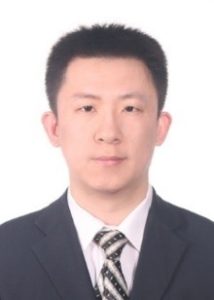T8: Decoupled Radio Access Networks for 6G: Concepts, Methods and Future Directions
Organizer: Haibo Zhou, Nanjing University, China
Organizer: Jiacheng Chen, Peng Cheng Laboratory, China
Abstract: The next generation mobile communications network is envisioned to face both significant user-side paradigm shifts and network-side challenges. On the one hand, trillions of IoT devices will connect to the network, and astronomical amount of data uploading traffic will deplete network bandwidth. Also, users will prefer more personalized service provision so as to satisfy their demands. On the other hand, network costs (e.g., infrastructure deployment and energy costs) are surging, and high-quality spectrum resources have been exhausted. In order to face the above changes, traditional RAN designs have been reconsidered recently, and novel RAN design principles have been proposed from various perspectives, aiming at achieving flexibility, scalability, and cost-efficiency. Most of the recent ideas have the design philosophy of functional decoupling behind them.
This tutorial will first explain the concepts of decoupling in related areas and provide a review on trending methods regarding decoupled RAN. Specifically, the tutorial will introduce control plane/user plane decoupling, uplink/downlink decoupling, decoupling in heterogeneous networks, and decoupling in user-centric cell-free networks. From the above examples and practices, the benefits of decoupling can be better understood. Then, the tutorial will present an introduction to the fully decoupled RAN (FD-RAN) architecture, in which functions of traditional base stations are physically split into three isolated entities, namely control, uplink and downlink base stations, and serve duplex control signaling, simplex uplink and downlink data transmission, respectively. Throughout the tutorial, the necessity of decoupled RAN for 6G will be emphasized.

Bio: Haibo Zhou (M’14-SM’18) received the Ph.D. degree in information and communication engineering from Shanghai Jiao Tong University, Shanghai, China, in 2014. From 2014 to 2017, he was a Postdoctoral Fellow with the Broadband Communications Research Group, Department of Electrical and Computer Engineering, University of Waterloo. He is currently an Associate Professor with the School of Electronic Science and Engineering, Nanjing University, Nanjing, China. He won the 2020 Norbert Wiener Review Award of IEEE/CAA Journal of Automatica Sinica and Best Conference Paper Award of Globecom’2020 and VTC-Fall’2020. He was named the 2020 highly cited researcher in cross-field. He was a recipient of the 2019 IEEE ComSoc Asia-Pacific Outstanding Young Researcher Award. He served as an Invited Track Co-Chair for ICCC’2019, VTC-Fall’2020 and a TPC member of many IEEE conferences, including GLOBECOM, ICC, and VTC. He served as an Associate Editor for the IEEE Comsoc Technically Co-Sponsored the Journal of Communications and Information Networks (JCIN) from April 2017 to March 2019, and a Guest Editor for the IEEE Transactions on Vehicular Technology in 2021, the IEEE Internet of Things Journal in 2021, the IEEE Communications Magazine in 2016, the Hindawi International Journal of Distributed Sensor Networks in 2017, and IET Communications in 2017. He is currently an Associate Editor of the IEEE Internet of Things Journal, IEEE Network Magazine, IEEE Wireless Communications Letter, and JCIN. His research interests include resource management and networking design in vehicular ad hoc networks, 5G/B5G wireless networks and space-air-ground integrated networks.

Jiacheng Chen received his Ph.D. degree in information and communications engineering from Shanghai Jiao Tong University, Shanghai, China, in 2018. From Dec. 2015 to Dec. 2016, he was a visiting scholar at BBCR group, University of Waterloo, Canada. Currently, he is an assistant researcher in Peng Cheng Laboratory, Shenzhen, China. His research interests include future network design, 5G/6G network, and resource management. He has won the Journal of Communications and Information Networks (JCIN) Best Paper Award in 2016, and the Chinese Institute of Electronics (CIE) Best Paper Award in Electronic & Information in 2020. He has served the guest editors for IEEE IoTJ and JCIN.
